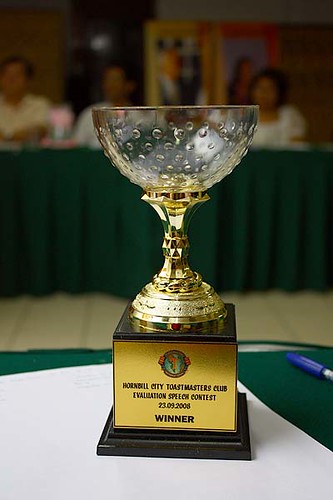
Date: 23.9.2008
Venue: Telang Usan Hotel
Theme: Evaluation Contest
TOE Victor started the meeting with a run-down of the judging criteria.
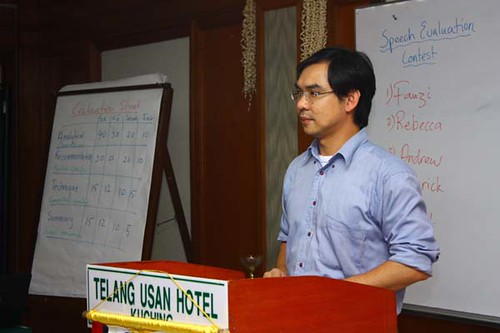
Mystery speaker Derbe then kick-started the Evaluation Contest.
The contestants delivering their evaluation of Derbe's speech:-
1. Fauzi
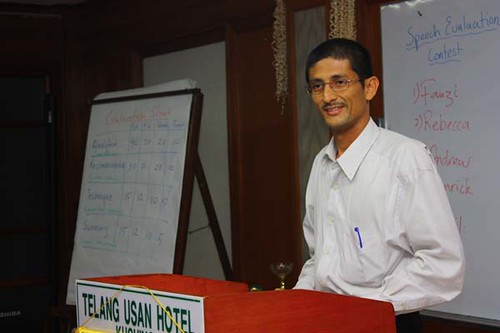
2. Rebecca
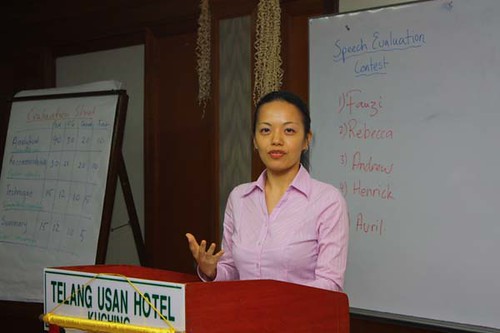
3. Andrew
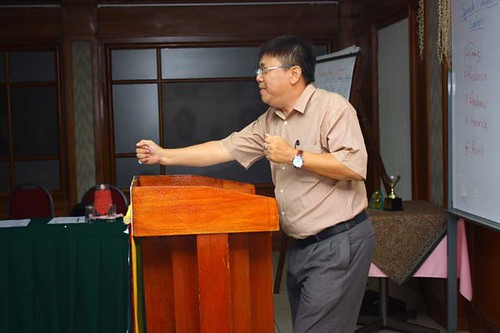
4. Henrick
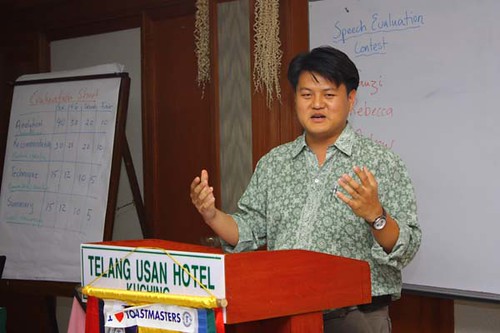
5. Avril
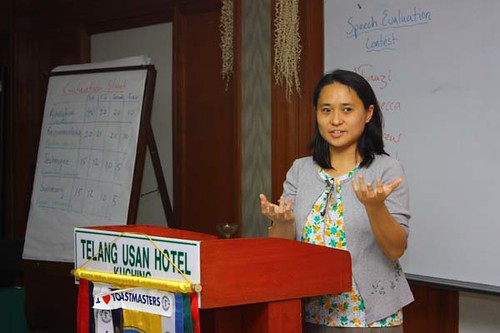
And the winners are:-
3rd place: Fauzi
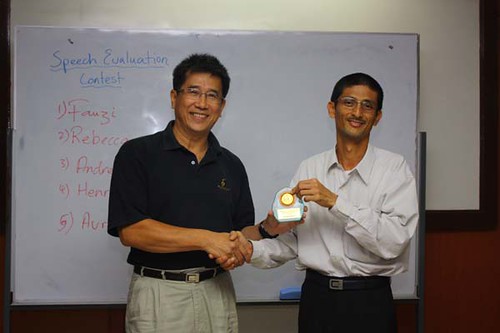
2nd place: Henrick
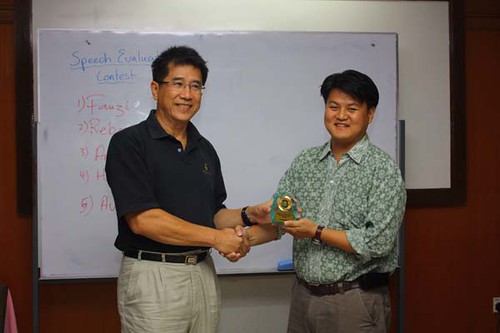
1st place: Rebecca : )
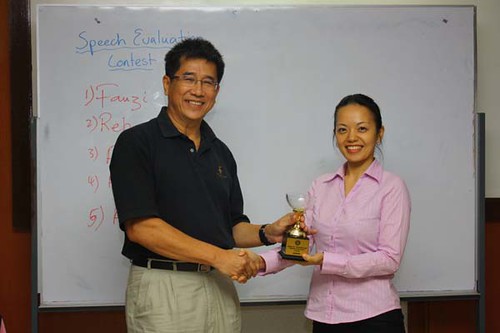
The second session of the meeting consisted of tables topics. TOE Victor introduced song titles from the 80s as table topics. I'll let the expression of the speakers 'speak' for themselves.
(My apologies, I forgot the song title of Jennifer's Table Topic. Could someone please drop me an e-mail or comment on this ~ derbe)
"Love me for a reason"
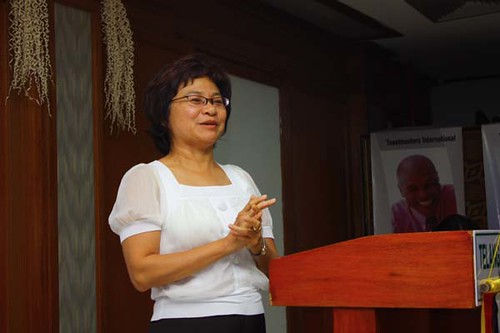
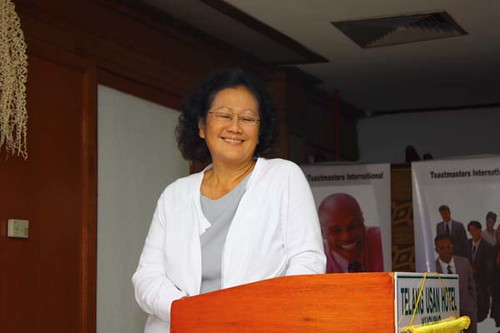
"She drives me crazy"
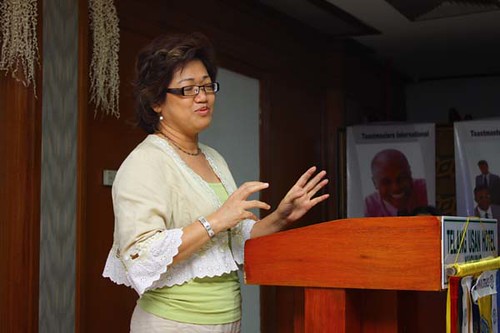
"No woman, no cry"
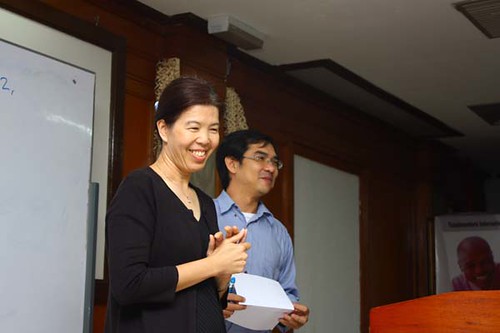
"The sound of silence"
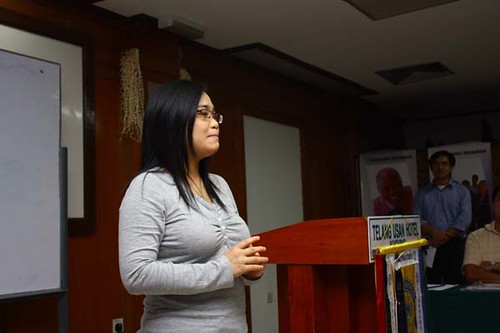
"Total eclipse of the heart"
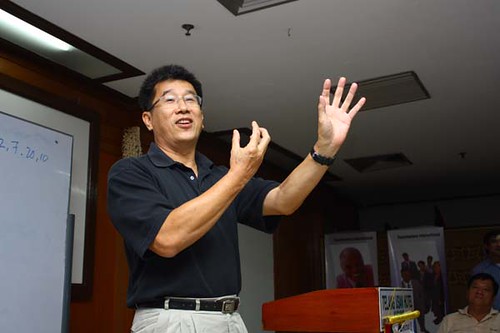
"You decorate my life"
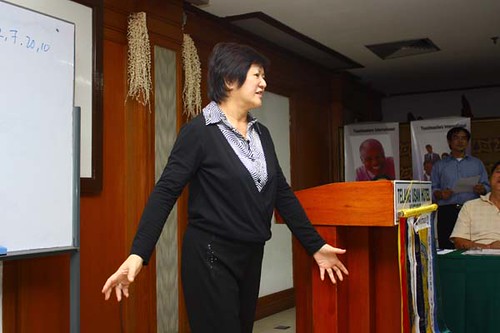
"I believe I can fly"
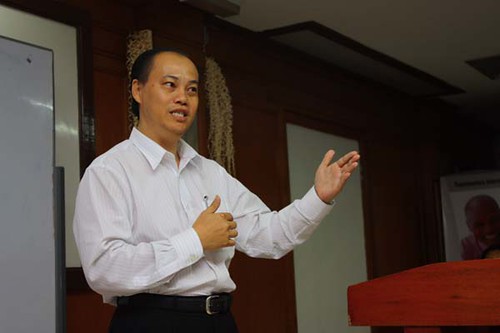
"The winner takes it all"
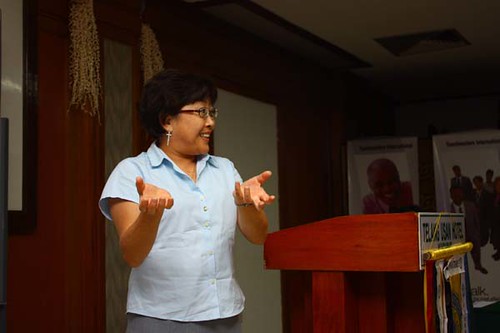
For more pics, click here: -
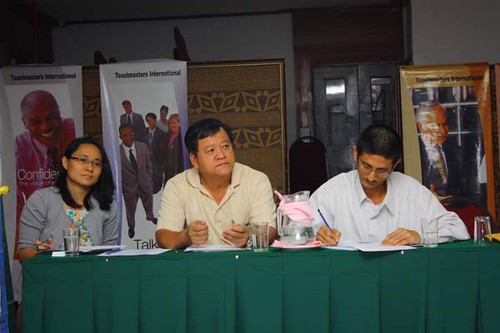
Visiting guest, Dr. Teo

+Sandra+Tang+and+(R)+Henrick+Lau+-+Past+contest+winners.JPG)

